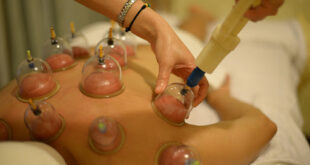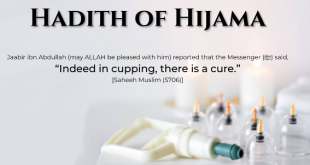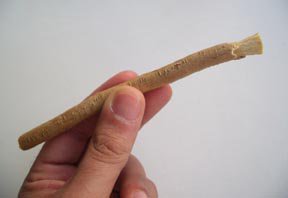Who would have guessed that many of the injunctions Islam prescribed 1400 years ago would be so effective today in maintaining hygiene and preventing disease.
But that’s the fact. They hold good today as they did back then. Islam teaches us that “God has not sent down a disease except that He has also sent down its cure“. And as we all know ‘Prevention is better than Cure‘. And what better way of preventing harm than by following Islamic prescriptions to the fullest.
So let’s see what they are:
FASTING:
Fasting is Number 1 on the list because of the immense benefits it confers on the human body. Besides its spiritual value, fasting continuously for a month from dawn to dusk as Islam prescribes for the entire holy month of Ramadan offers numerous health benefits.
Benefits of prolonged fasting as prescribed by Islam includes reducing the risk of developing diabetes and heart disease, reducing the risk of developing cancer, staving off Parkinson’s disease and dementia, detoxifying the body of natural toxins found in foods and cleansing the digestive system.
There is a very simple explanation as to why this happens. Scientists have found that when the human body is exposed to hunger for a period of not less than 8 hours and not more than 16 hours (which falls within the Islamically prescribed duration of fasting), it goes through a process called autophagy. When a person’s body is hungry, the cells of his body are also hungry. These hungry cells will eat up dead or damaged cells that are no longer useful. Cancerous cells also fall victim to the process. Thus cancerous cells that have just commenced proliferating, but not to the extent of causing symptoms to appear, will be eliminated in this process. This means that your body would have eliminated this early spread of cancer without you even knowing it.
There’s more to it. When you fast, your system tries to save energy, and one of the things it does to save energy is to recycle a lot of unnecessary or redundant cells that are not needed, especially those that are old or damaged. Thus white blood cells go through a regenerative process and this process reboots the entire immune system. This may explain why Muslim nations were hardly affected at the height of the COVID crisis in the month of Ramadan.
ABLUTION AND BATHING:
Islam prescribes ablution or the washing of the exposed parts of the body including hands, face and feet before every prayer which is performed five times a day. The washing is recommended to be done three times. The first wash wets the skin, the second wash dislodges dirt, impurities or industrial pollutants and the third wash sweeps it all away. The importance of such ablution cannot be underestimated especially in times of epidemics and industrial pollution.
Bathing of the entire body must take place on Fridays, after sexual intercourse and after menstruation. This bath involves water touching all parts of the body, including the skin under the hair. Such bath contributes to cleanliness including after the passion of sex which could leave bodily fluids such as saliva, seminal fluid and vaginal secretions on our persons and what better way to cleanse oneself of it than by taking a bath? If you stop to ponder, you will notice that after sex you will feel enervated, as if sapped of your strength and get this feeling that you’re not in a very clean state. Take a bath and feel the difference. You’ll feel like a new man or woman!
BRUSHING TEETH:
Islam recommends the brushing of teeth before every prayer. In the early days of Islam this took the form of miswak, a twig with anti-microbial properties though today a toothbrush serves the same purpose.
Still, the miswak can hold its own against any toothbrush. This wonder twig of the Salvadora Persica is as good or better than your usual toothpaste for preventing gum disease, dental caries and plaque buildup, not to mention the fact that it dislodges food deposits that can cause tooth decay and bad breath. Recent studies have shown that miswak has germ-fighting properties, like the one done by the Wrigley Company which found that mints laced with miswak extract were 20 times more effective in killing bacteria than ordinary mints. Such bacteria needless to say cause tooth decay as any schoolboy or schoolgirl knows. That’s not all, it contains over ten different natural chemical compounds essential for maintaining oral hygiene including fluoride, salvadorine and trimethylamine.
CIRCUMCISION:
Circumcision is prescribed for both males and females with the most sound opinion being that it is obligatory for both. Male circumcision involves removing the foreskin, the fold of skin covering the head of the penis. Female circumcision involves removing the female foreskin (the clitoral hood or prepuce) that covers the glans of the clitoris.
These unclean folds of skin produce a foul-smelling, germ-containing, cheese-like secretion known as smegma formed of desquamated epithelial cells that collect underneath the prepuce. Such smegma could harbour harmful bacteria and viruses. In the case of males, circumcision confers a number of health benefits including a reduction in Urinary Tract Infections, penile cancer and AIDS. Recent findings also show that male circumcision prevents the spread of Human Papilloma Virus (HPV) to female partners which could cause cervical cancer.
Little is it known that female circumcision also confers immense health benefits. Since the clitoris is usually hidden in the vulva it is less likely to be cleansed of smegma if left uncircumcised. As a result it tends to harbour germs that can cause a number of diseases, the most frequent being Urinary Tract Infections, an all too frequent complaint in women. Female circumcision also helps prevent genital cancers especially vulvar cancer, herpes, chancroid and granuloma, What’s more, it prevents male partners engaging in oral sex (cunninlingus) from acquiring HPV virus from female partners which could breed in their oral cavities and cause mouth or throat cancer.
REMOVING SUPERFLUOUS BODILY HAIR:
Islam prescribes the regular removal of superfluous hair in the armpits and pubic region within forty days. Pubic hair is often very thick and combined with the oil and sweat that often collects in the area around the genitals can contribute to general uncleanliness in this vital part of the human body. The pubes if left unshaven attract crab lice which in fact takes its scientific name of Pthirus Pubis from the pubes. This little parasite which could hardly be seen feeds exclusively on blood, gorging it up five times a day. These creatures spread rapidly since the female lays about three eggs a day on the coarse hairs of the pubes so that in less than a month one could have fully grown adult bugs continuing with their bloody meals and perpetuating their species to reach other hairy parts of the body to infest and spread to other people.
Similarly, plucking the hairs under the armpits helps maintain hygiene. Armpit hair if let to grow is not only unsightly but also unhealthy since it tends to combine with sweat and grime that very frequently collect under the armpit, giving out a bad odour and serving as a breeding ground for bacteria to thrive leading to infections like trichomycosis axillaris caused by the bacteria Corynebacterium tenuis which thrives in the moist hair under the underarm. The infection produces unsightly yellow masses that grow around the hair shafts, but that’s not all. It releases a revolting body odour as the bacteria causing the condition can break down sweat, metabolizing testosterone in the sweat to form foul-smelling compounds.
PARING NAILS
Islam recommends the paring of nails once a week with the maximum period nails can be left uncut being forty days. Paring one’s nails is vital for cleanliness since dirt and germs can easily get trapped under the nails and get passed on to the alimentary tract when eating or preparing food. Indeed, uncut fingernails are one of the most prolific places for germs to breed. The little spaces under the nails can harbour numerous bacteria that can cause diarrhea and other potentially deadly diseases, not to mention pinworms, a very common little roundworm Enterobius vermicularis that can find its way to the intestines to wreak havoc there. Even ordinary day to day activities like cleaning one’s genitals after a call of nature or changing diapers or handling food like raw meat can leave such germs under one’s nails especially if they are longer than three milimetres.
Health workers with long nails are among the most likely to carry the deadliest germs such as Klebsiella, a bacteria that causes pneumonia and urinary tract infections, Pseudomonas aeruginosa, an all too common bacteria that can find their way into nasal passages and Candida parapsilosis, a yeast that causes wound and blood stream infections, all of which have been blamed for the deaths of newborns in maternal hospitals. If such diseases caused by long nails can occur under extremely sanitary conditions in the health care sector one can only imagine what problems they can cause in other settings? Yes, long fingernails can even kill, literally! Needless to say, keeping nails short on all occasions is the best solution.
WASHING HANDS BEFORE MEALS:
Islam encourages one to wash his or her hands before and after meals with the teaching that the food is blessed when one does so. One need not dwell too much on this hygienic prescription since we now know the importance of washing the hands with which we eat, fully well aware that germs lurk everywhere and can easily get into our bodies when we take in food. It’s equally important to wash our hands after eating since food residue can easily decay and attract germs of all sorts to become a breeding ground for dangerous bacteria which could then pass on to your body the instant you take your next morsel.
AVOIDING CONTACT WITH DOGS
Although Islam requires that dogs be treated well and allows keeping them as watchdogs or hunting dogs, they are not to be kept inside the house nor should their saliva come into contact with human skin in which event that part of the body it came in contact with has to be washed seven times, six times with water and one time with sand.
The reason for this is obvious. Canine saliva is the best medium in which the fatal disease of rabies could thrive and spread. A dog need not be openly mad to make it rabid, for rabies can breed in it for weeks or even months before manifesting itself. Needless to say, it’s the dog’s saliva that they find the ideal way to reach a human host. The bite of a mad dog comes later in the more advanced stages.
There is also the very real danger of intestinal parasites such as roundworm being passed by a dog merely licking you. Other diseases that can be transmitted by dog saliva include Leptospirosis, Salmonella and E. coli that can cause severe intestinal diseases in humans and in severe cases blindness and brain disorders. Dogs also tend to lick their anus or eat their faeces which is why they are known, along with pigs, as coprophagic creatures or creatures that tend to eat their faeces. So parasite eggs found in their faeces could also find their way to humans through licking especially of the face which many folk in the West affectionately call ‘puppy kisses’ unaware of the dangers they face. The single celled parasites, Giardia and Cryptosporidia can cause immediate infection simply after being transmitted by a lick while contracting hookworms, tapeworms, threadworms take longer to show.
COVERING UTENSILS AT NIGHT
Islam requires that all cooking and drinking utensils be covered at night. Exposed food after all poses many dangers. Since food is soft, it is especially susceptible to contamination caused by bacteria and pests. Rats may eat of it and cockroaches nibble and walk over it, leaving in their wake numerous germs that can cause a host of diseases. Roaches are by nature filthy creatures and pick up germs on the spines of their legs since they crawl through decaying matter or sewage before passing these unto food. If you can digest more, the latest findings show that roaches can spread as many as 33 kinds of bacteria, six kinds of parasitic worms, and at least seven other kinds of human pathogens. Among the diseases they contribute are gastroenteritis and food poisoning resulting from Salmonella, Staphylococcus and other bacteria. In fact, roaches carrying Escherichia coli from human faecal matter which can cause terrible bouts of diarrhea have even been found in food establishments.
The same holds true of rats who carry bacteria such as Salmonella that causes food poisoning and E. coli which causes diarrhea not to mention pathogens causing dangerous fevers such as Seoul hantavirus and Leptospira. And who can ever forget the great plague known as the Black Death that ravaged Europe centuries ago. Yes, Yersinia pestis, which caused the bubonic plague, wiping out an estimated third of Europe’s population was spread by infected rats that found their way into human dwellings.
QUARANTINE IN TIMES OF EPIDEMICS
Islam took measures to control epidemics once they had broken out. It forbade people to leave or enter lands where there had been an outbreak of plague so as to check the spread of the disease, thus giving the world the first lesson in quarantine. As we know today, even people who may not show any outward signs of disease, may actually be carrying the disease which they could transmit to other people. Thus Islam made quarantine whenever an epidemic broke out as a religious obligation so that it could be contained and not spread to other areas. Had mediaeval Europe followed this prescription, the Black Death would not have spread beyond a very limited area.
TAKE GOOD CARE OF YOUR BODY, IT IS THE ONLY REAL HOME YOU HAVE.
HEALTH IS THE GREATEST WEALTH !
Post Disclaimer | Support Us
Support Us
The sailanmuslim.com web site entirely supported by individual donors and well wishers. If you regularly visit this site and wish to show your appreciation, or if you wish to see further development of sailanmuslim.com, please donate us
IMPORTANT : All content hosted on sailanmuslim.com is solely for non-commercial purposes and with the permission of original copyright holders. Any other use of the hosted content, such as for financial gain, requires express approval from the copyright owners.
 Sri lanka Muslims Web Portal Diversity and Inclusiveness
Sri lanka Muslims Web Portal Diversity and Inclusiveness



